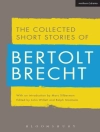In ‘Pamela, or Virtue Rewarded, ‘ Samuel Richardson crafts an epistolary novel that intricately explores themes of virtue, social class, and the condition of women in the 18th century. The narrative unfolds through a series of letters penned by the virtuous young maid, Pamela Andrews, as she navigates the advances of her master, Mr. B, who initially seeks to exploit her but ultimately becomes enamored with her integrity. Richardson’s writing style is marked by its meticulous attention to character psychology and moral dilemmas, engaging readers in a moral discourse over virtue and morality that was particularly resonant in the context of emerging middle-class sentiments and shifting gender roles of the Enlightenment period. Samuel Richardson, a prominent figure in the transition from 17th-century literary traditions to the novel as a distinct form, drew on his experiences in the printing trade and as a social observer to create this pioneering work. His understanding of human psychology and societal norms influenced his portrayal of Pamela as a quintessential example of virtue in a corrupt society, effectively reflecting the contemporary debates surrounding class, gender, and the role of women in public and private spheres. ‘Pamela, or Virtue Rewarded’ remains a seminal text for readers and scholars alike, offering a deep dive into the complexities of personal integrity amidst societal pressures. It invites contemporary readers to reflect on the timeless struggles against moral compromise and the intricate dynamics of power in relationships, making it a compelling read for anyone interested in the foundations of the novel and the evolution of feminist thought.
Over de auteur
Samuel Richardson (1689-1761) was an esteemed English writer and printer, widely recognized as one of the innovators of the English novel. Born into a modest family in Derbyshire, Richardson showed a penchant for literature at an early age, yet his formal education was limited. He was apprenticed to a London printer, a career that honed his craft in writing and publishing. In the midst of a successful printing business, Richardson took to writing novels relatively late in life. His epistolary novel, ‘Pamela, or Virtue Rewarded’ (1740), marks a historical shift in literary narrative, offering psychological depth through the intimate access to a character’s thoughts and feelings. The novel chronicles a young servant girl’s resilience against her master’s attempts at seduction, and her eventual moral and matrimonial triumph. Richardson’s portrayal of Pamela’s virtue and eventual upwards social mobility catered to the middle-class audience and the sensibilities of his time. This work was pioneering in its exploration of personal morality, social structure, and the complexities of human behavior, influencing the development of the novelistic form. Richardson’s narrative technique and focus on the individual have situated him as a central figure in the evolution of the modern novel, earning him a distinguished place in literary history.












